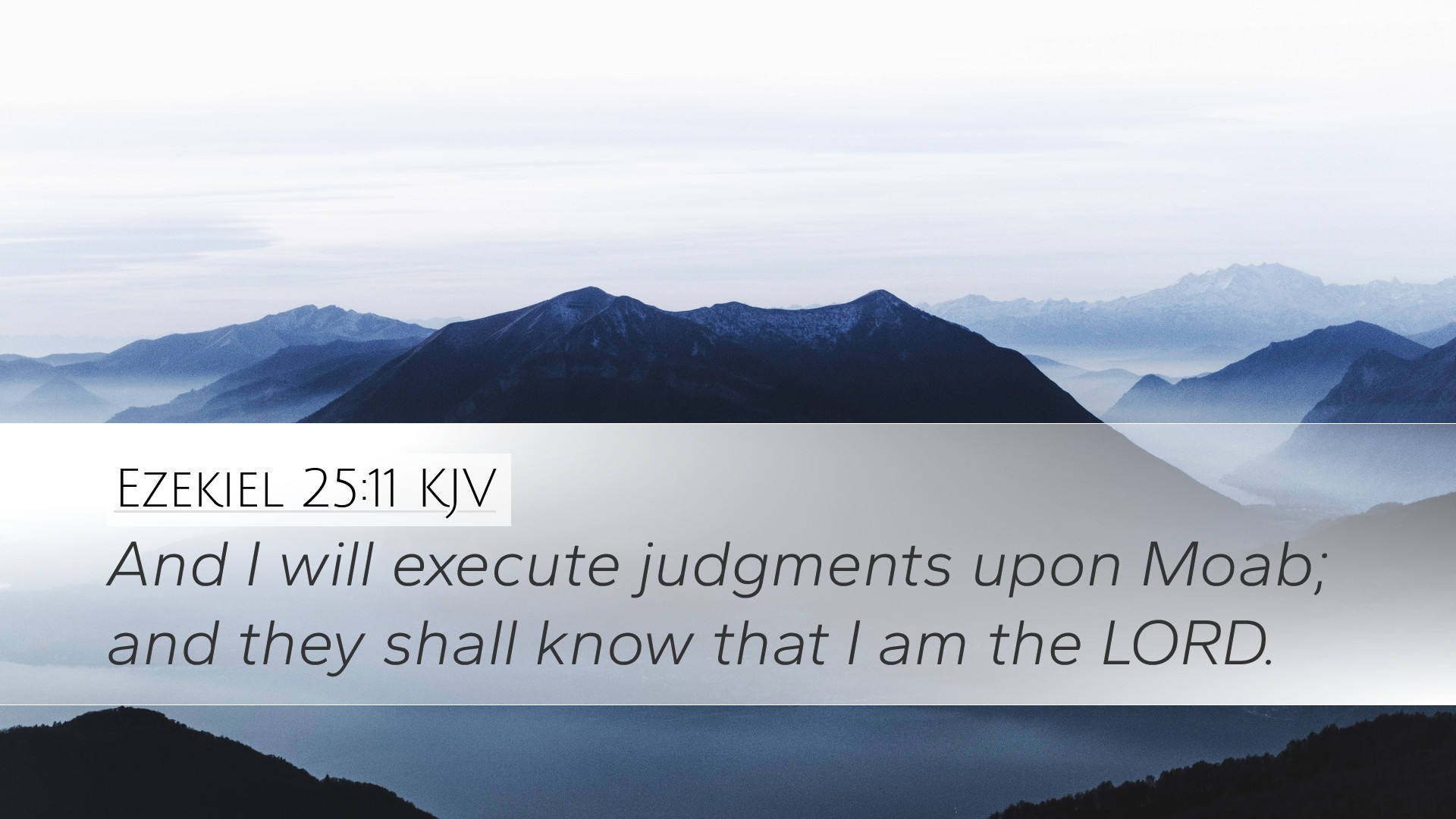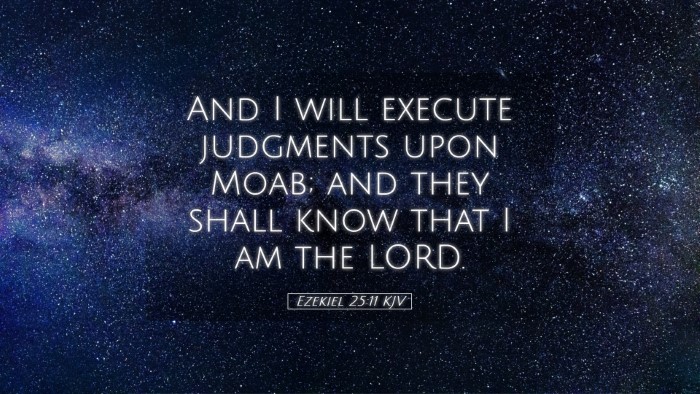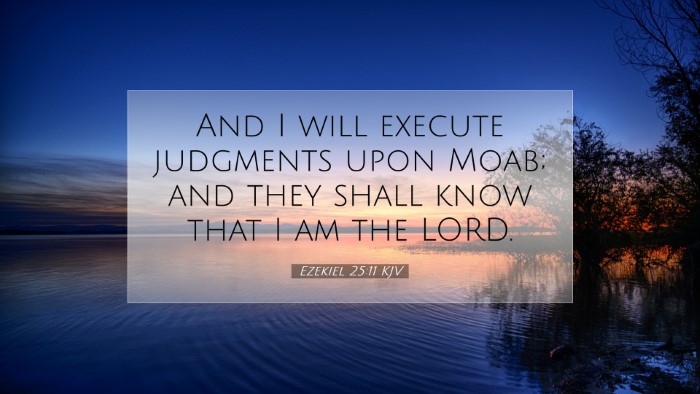Ezekiel 25:11 - Commentary Summary
Verse Text: "And I will execute judgments upon Moab; and they shall know that I am the Lord." (Ezekiel 25:11, KJV)
Introduction
This verse is part of a prophecy against the nations surrounding Israel. Here, specifically, God addresses Moab, a nation often in conflict with Israel and characterized by pride and hostility toward God's people. In the wider context of Ezekiel 25, the Lord outlines judgments against various nations, declaring His sovereignty and the ultimate realization of His glory through judgment.
Interpretative Insights
-
Matthew Henry's Commentary:
Henry emphasizes that the judgment upon Moab serves both as a divine punishment and a revelation of God's holiness. He notes that Moab had not only sinned against Israel but also against God Himself. The execution of judgment is significant because it draws attention to the nature of divine justice — that God will hold all nations accountable.
-
Albert Barnes' Notes:
Barnes highlights the historical context of Moab's opposition to Israel, referencing the nation's unyielding attitude during Israel's struggles. He points out that Moab's downfall was both a lesson to them and a warning to other nations. The statement "they shall know that I am the Lord" implies a coming awareness of God's authority and control over the affairs of men.
-
Adam Clarke's Commentary:
Clarke delves into the specific judgments that God would execute against Moab. He interprets this verse as an assertion of divine sovereignty, where God's intervention proves His supremacy over false gods worshiped by the Moabites. Clarke emphasizes that the purpose of these judgments is always restoration and the recognition of God's power by the nations themselves.
Theological Implications
This passage has profound theological implications. Firstly, it reaffirms the belief in God's absolute sovereignty over all nations. It serves as a reminder that no nation is beyond God's reach, and His purposes will ultimately prevail. The phrase "they shall know that I am the Lord" reflects a central theme throughout the Scriptures — God's desire to reveal Himself, not only to Israel but to all humanity.
Practical Applications for Today
-
Understanding Divine Judgment:
Modern readers can reflect on the nature of divine judgment and its role in God's plan. Just as God executed judgment on Moab, He holds contemporary nations accountable. Believers are encouraged to consider their own standing before God, recognizing the urgent need for repentance and alignment with His will.
-
Revealing God's Sovereignty:
This verse challenges believers to recognize God's sovereignty in world events. In an age where chaos seems prevalent, understanding that God is above the nations can instill peace and assurance in the believer's heart.
-
A Call for Evangelism:
Lastly, the proclamation of divine judgment serves as a call to evangelism. Just as Moab would come to know the Lord through judgment, today’s believers are tasked with sharing the Gospel, allowing others to know of the mercy and grace of God before they encounter His judgment.
Conclusion
Ezekiel 25:11 encapsulates the essence of God’s justice and sovereignty. Through the lens of prophetic scripture, it offers insights into the nature of God’s relationship with nations. For pastors, students, theologians, and scholars, this verse serves not only as a historical account of judgment but as a timeless reminder of God's unyielding power and a call to recognize His authority in all aspects of life.


